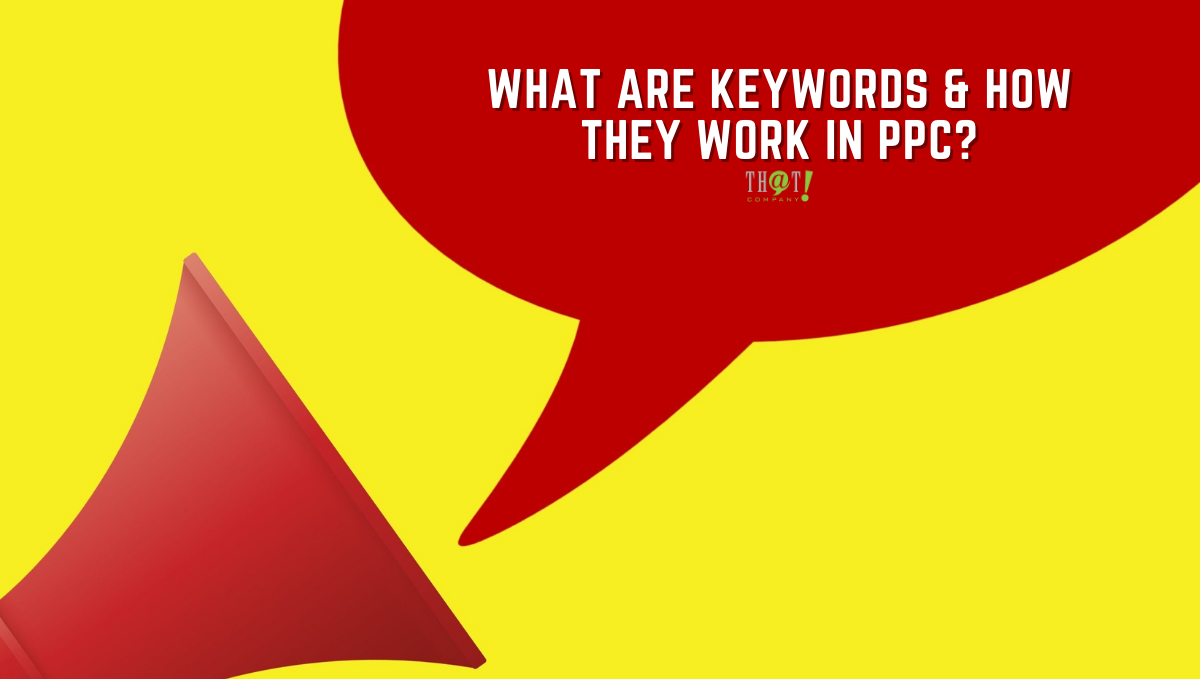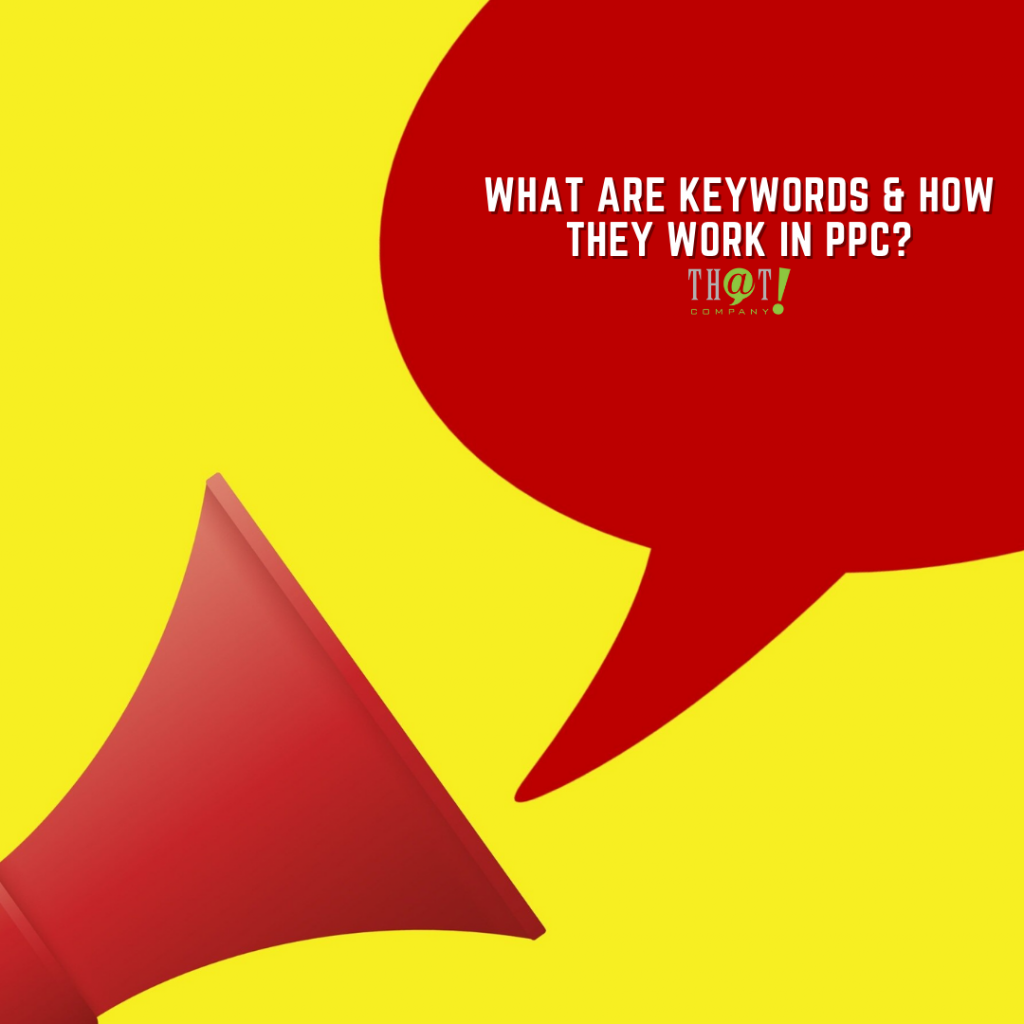
Keywords in PPC have become one of the most important factors that you must consider when optimizing your PPC campaign.
Today, Google is the most trusted companion for people whenever they do research. For your website to be shown in their Google searches, it needs something essential: keywords.
We all know that keywords in PPC management are the foundation for everything. Keywords are what you use to define where your ads should appear.
The keyword is simply a phrase, usually between one to five words, but often even more. They highlight a topic of interest to a person searching. Finding the right keywords in PPC will lead to higher profits for your business.
Why are Keywords Important?
It all starts with keywords.
Keyword research is one of the first steps, and arguably one of the most important SEO and PPC factors for identifying optimization opportunities for getting the right visitors to your website.
They tell search engines like Google what your page is about. They try to provide the best information about a topic to a person searching. The only way search engines know what your page is all about is through the words on it. By taking those words and applying an algorithm to them, they know if the page would be helpful to the user.
By using effective keyword research tools, you can determine the popular, underserved niches in your target marketing, find related markets you may have overlooked, and rank well in search engines results that have the best traffic for your ideal visitors.
Define Your Audience and Your Goals
 Start by thinking about “who are you trying to reach?” What kind of people do you want to come to your site? Figure out who your product or service is for. This way, you will already have ideas about which keywords in PPC you have to use
Start by thinking about “who are you trying to reach?” What kind of people do you want to come to your site? Figure out who your product or service is for. This way, you will already have ideas about which keywords in PPC you have to use
Also, keep in mind your goals. With ad campaigns, think about the leading people promoting on search engines. What do you want your website visitors to do once there?
Your target audience is the overall audience you want to sell to or reach.
The same is true with on-page SEO. What is the goal of your page or post? How do you want visitors to convert? Finding your goals will help you define specific keywords.
Finding Primary Keywords in PPC
Once you have started researching your keywords you will probably find thousands that you could use on your site.
Profitable keywords in PPC often include one or two main words that define the purpose of the page or business. Then, together with additional words, they form longer keywords.
Primary keywords are those terms you want to rank up for. These are terms with high search volume that can bring a considerable amount of traffic to your site. Picking the right keywords is one of the most important steps in successful search engine optimization (SEO).
Increasing traffic to your site is a priority, but attracting the right audience is a necessity. Choosing the most effective keywords in PPC to connect with your target market can take time and research, but the results will be worth it.
[bctt tweet=”Keyword research is one of the first steps, and arguably one of the most important SEO and PPC factors for identifying optimization opportunities for getting the right visitors to your website.” username=”ThatCompanycom”]Keywords that Describe Your Products or Service
 The way you write your product or service descriptions has a direct effect on your sales figures.
The way you write your product or service descriptions has a direct effect on your sales figures.
First things first. There is a need to take advantage of opportunities that can help you identify new keywords that will be relevant to your business. Now, you have an understanding of just how important keywords in PPC can be, it is time to effect changes.
If you are trying to promote a product or service, then a good place to start is the words that describe that product or service.
Focus on the aspects of your offerings that they will find appealing, and the qualities that will create incentives for them to buy.
For example, if you are trying to sell fishing equipment (or if you are referring to sales as an affiliate), then fishing equipment is a good primary keyword.
Location Keywords
Location-based, also known as Geo-targeting, is the practice of optimizing your content to appear in your target location.
If your business is based in a physical location, it is highly recommended to use location-based keywords in PPC. Start with your country, region, city, or even your neighborhood. This makes it much easier for those searching in a specific area to find your business. In this way, they are targeting a specific audience and will probably find it easier to rank well in search engines.
It is fair to say that Google is getting better and better at creating location-based search results on more generic topics, where searchers are looking for something.
Check the competition
Before you try to rank for a keyword, check the competition.
Competitor keywords in PPC are the keywords that companies, especially white label marketing agencies, compete with to target and achieve search engine rankings. Search for your keyword in an incognito browser window. See which results you get. You can also consider using a tool like SEMrush to get a complete profile on your competitors. Your posting targeting that keyword must be better.
Keyword research uncovers the keywords that drive traffic to your competitors’ websites. This gives your insight into their audience’s interests and helps you choose keywords in PPC.
Also, it is easier to compete with smaller and less known sites. If you see a lot of popular websites on the page, that specific keyword may be difficult t compete for fir. You can try a keyword related to that one, but with some extra words in it, going more specific.
On the other hand, if you see a log of small blogs or forum results on the first page. You can easily compete for that keyword.
Ultimately, the quality of the articles should be the most important factor. If there are already too many great articles about that keyword, maybe you should skip it. If you feel like you can do a better job for it, though, go for it, sometimes even if it seems like you will be going against very famous websites, it may be worth it.
Remember, on-page SEO is not just about keywords. It considers the value of the content itself for readers. So, if the competition’s content is lacking in value, you can make your post or page better.
Include Contextual Keywords
 We are now matching our ad to the content or website. So, while audience targeting relates to who, contextual targeting relates to where. So, what type of content? Where is the content that we are targeting? It could be any audience. It could be multiple audiences, but it’s the content we are most interested in.
We are now matching our ad to the content or website. So, while audience targeting relates to who, contextual targeting relates to where. So, what type of content? Where is the content that we are targeting? It could be any audience. It could be multiple audiences, but it’s the content we are most interested in.
When the search engine crawls a page, it wants to see certain things. It starts with main keywords, which lead to the correct understanding of what the page is about.
However, once these bots find the main keywords, they also want to see contextual or related keywords.
When bots find posts and pages that contain main keywords supported by related keywords, your website will earn a better ranking.
Our targeting options within the contextual sphere are contextual keywords, topics, and placements.






























